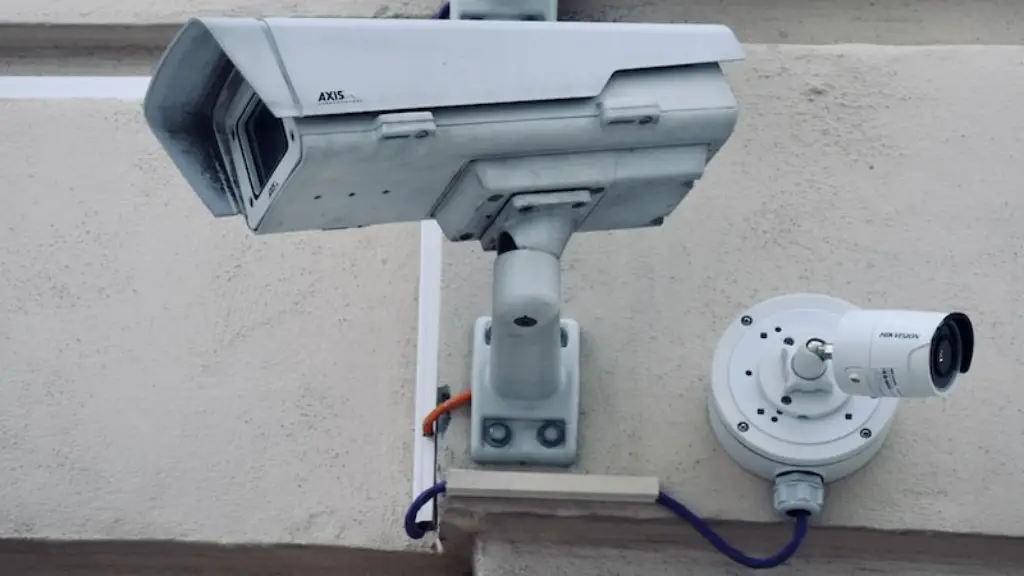CIA’s Origins and Early Days
The Central Intelligence Agency, or CIA, was established in 1947 with the passage of the National Security Act. This act created the CIA and the National Security Council, and tasked the CIA with the duties of collecting, analyzing, and distributing intelligence from foreign nations. From its very beginning, the CIA was shrouded in secrecy, with its operations and alliances kept quiet from the public.
The CIA initially worked to contain the spread of Communism throughout the world, especially in the Soviet Bloc countries. To do this, it formed alliances with other countries, stockpiled arms in certain strategic locations, employed a wide range of espionage techniques, and carried out covert actions.
The Cold War was a major impetus for the development of the CIA. During this period, the CIA conducted a variety of operations to prove the loyalty of the U.S. to its allies and the strength of the country’s intelligence apparatus. The CIA was also responsible for the overthrow of several democratically-elected leaders in third-world countries – an action that has been widely condemned by civil society groups around the world.
Controversy and Accountability
Throughout its history, the CIA has been subject to much criticism. From its inception, the secrecy that has surrounded its operations and activities has led many to question the CIA’s legitimacy and effectiveness.
Critics have argued that the CIA often operates unchecked and unaccountable, with its operations amounting to a form of “shadow government” that is beyond the reach of civilian law and oversight. Secrecy also means that any abuses of power are often very difficult to detect, let alone prosecute.
Additionally, allegations of torture and human rights abuses have long plagued the agency. Many argue that these alleged abuses should disqualify the CIA as an effective intelligence agency, and raise serious moral and ethical considerations.
The Current State of the CIA
Despite its history and controversy, the CIA still exists and remains a powerful force in the realm of intelligence gathering. The agency continues to carry out a range of operations around the world, and its activities are still incredibly secretive. It still works closely with other countries and shares intelligence, and its alliances with certain countries are still highly controversial.
Despite its storied history, the CIA’s activities remain shrouded in mystery. It is unclear what the agency is up to on a day-to-day basis, and its activities are rarely made public. This lack of information makes it difficult for the public to assess the efficacy and ethics of the CIA’s operations.
Critics remain vocal about alleged abuses of power, with some calling for the CIA to be disbanded. There are also complaints about the agency’s lack of transparency and its unwillingness to be subject to the same ethical standards as other government agencies.
The Impact of Technology on the CIA
Technology has had a major impact on the CIA. With the advances in digital surveillance and the rise of “big data”, the CIA is able to mine large amounts of data and track the movements of people around the world. It also has increased its use of drones and other types of robotics to carry out targeted killings and other coercive tactics.
Critics of the CIA argue that its use of technology to carry out its missions has been highly unethical and immoral, and that it is much easier for the agency to commit abuses of power without detection.
At the same time, technology has made it much easier for the CIA to gather and analyze large amounts of data, greatly increasing its efficiency and allowing it to gather more timely and accurate information.
The Future of the CIA
The future of the CIA is uncertain. Many argue that its days are numbered and that its activities are in decline. Others feel that the agency is still needed, particularly in a world where there are many threats to U.S. security.
The CIA will undoubtedly continue to face criticism, both from its political opponents and from civil society groups. As technology advances, the agency will face increasing scrutiny as its activities become easier to detect. It will also have to grapple with the ethical implications of using new technologies to carry out its operations.
Regardless of its future, the Central Intelligence Agency will remain one of the most important and controversial organizations in the world. As it moves forward, the CIA will no doubt be surrounded by secrecy and controversy.
CIA and Public Opinion
The CIA has had a complicated relationship with public opinion. While the agency’s activities are largely shielded from public view, its controversial history has been highlighted in popular culture and the media.
Despite this, a majority of people still view the CIA favorably. According to a recent survey conducted by The Economist, the majority of Americans have a favorable opinion of the agency. This is especially true in certain countries, such as Israel, India, and the United Kingdom, where the agency is seen as an important pillar of national security.
At the same time, the agency is viewed with skepticism and mistrust in some countries, particularly in the Middle East and South America. Rising tensions between the U.S. and certain countries have led to further distrust of the agency.
The Role of Intelligence in U.S. Foreign Policy
The Central Intelligence Agency plays an important role in U.S. foreign policy. The agency is tasked with gathering intelligence on foreign governments and assessing the security threats to the United States. This information is then used by the U.S. government to make decisions about foreign policy and to craft diplomatic strategies.
The CIA is also often used as a tool for the U.S. government to gain a strategic advantage over its adversaries. The agency has been involved in a wide range of covert operations, such as supporting rebel forces and carrying out targeted killings.
The CIA’s role in U.S. foreign policy has been highly controversial. Critics argue that the agency’s activities often result in disastrous consequences and are an affront to international law. Regardless, the agency’s activities remain shrouded in secrecy and it is likely that the CIA will continue to retain its role in U.S. foreign policy for the foreseeable future.
Conclusion
The Central Intelligence Agency is one of the most controversial organizations in the world. Its activities remain largely shrouded in mystery, and it is difficult for the public to assess the efficacy and morality of its operations.
At the same time, the agency still plays an important role in U.S. foreign policy, and its activities remain important and highly contested. As technology advances and tensions rise around the world, the CIA will no doubt remain a source of controversy.


